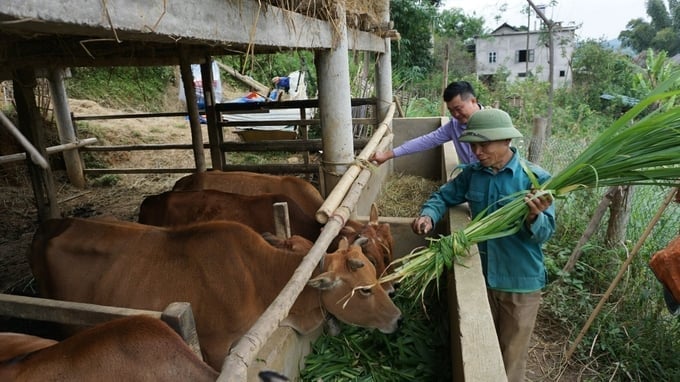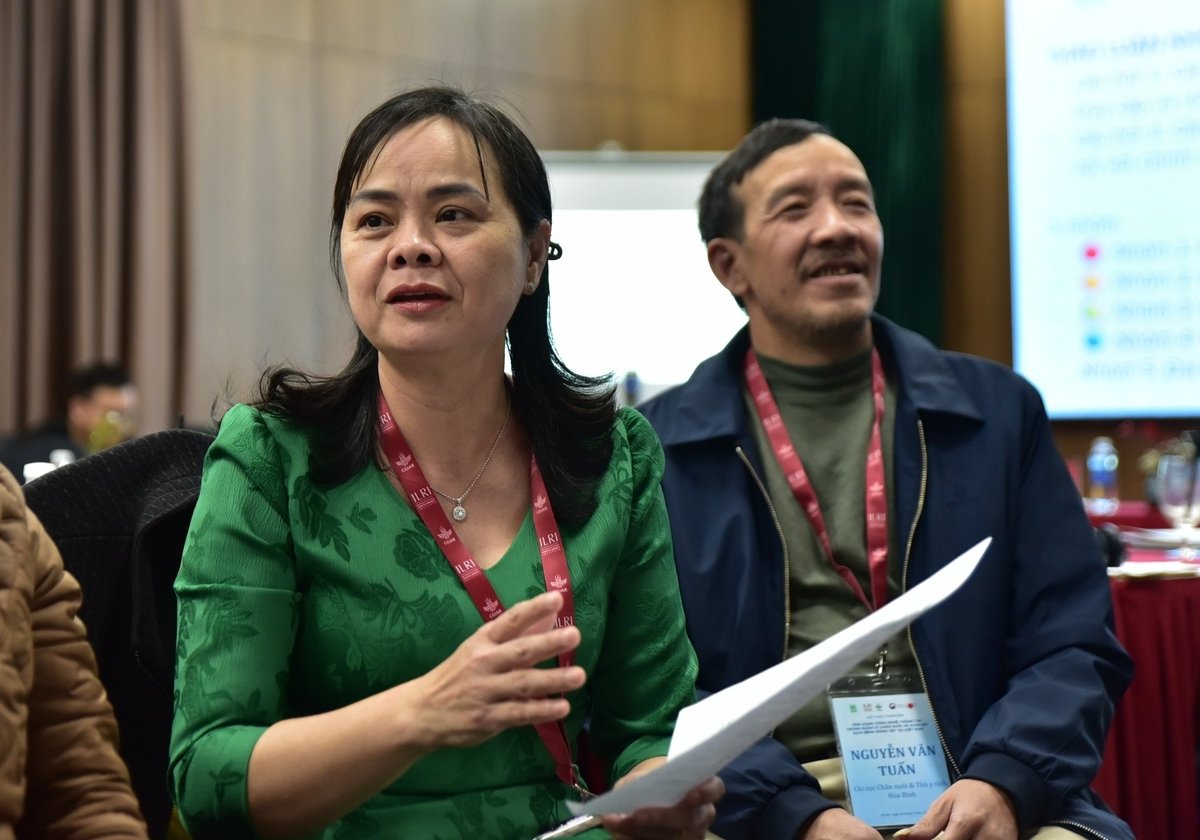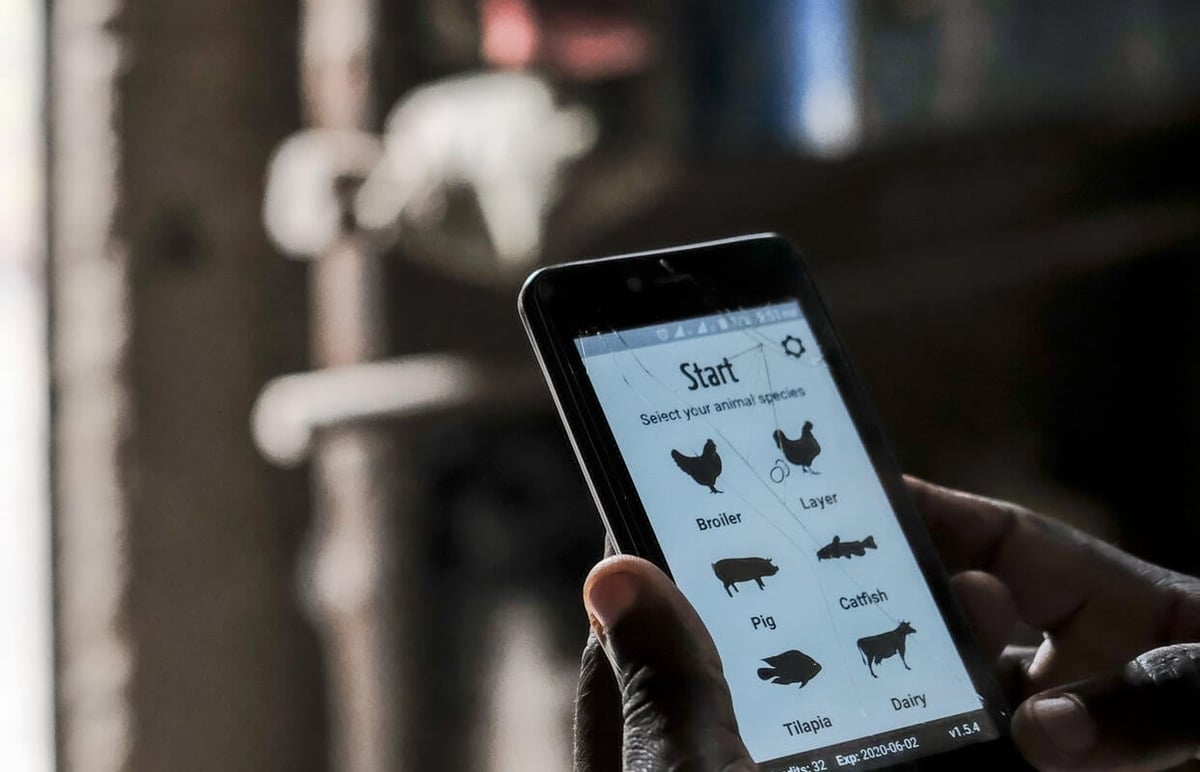December 4, 2025 | 15:11 GMT +7
December 4, 2025 | 15:11 GMT +7
Hotline: 0913.378.918
December 4, 2025 | 15:11 GMT +7
Hotline: 0913.378.918
At the consultation workshop on information and communication technology (ICT) application in animal husbandry management and animal disease surveillance in Vietnam, held on March 20 in Hanoi, organized by the International Livestock Research Institute (ILRI) in collaboration with the Institute of Veterinary Medicine (Ministry of Agriculture and Environment), representatives of Lao Cai and Hoa Binh provinces shared openly about the digital transformation needs of each locality.

Livestock farming in mountainous areas is often small-scale and scattered, so grassroots veterinary staff face many difficulties in accessing it. Photo: HD.
Ms. Cao Thi Hoa Binh, Head of the Sub-Department of Animal Health and Plant Protection of Lao Cai province, is interested in the possibility of expanding ICT applications in local management. She shared that livestock households in mountainous areas are often small-scale and scattered, so grassroots veterinary staff face many difficulties in approaching them.
According to Ms. Binh, complying with Vietnam’s policy of reducing the district level and merging the commune level, Lao Cai province plans to reduce the number of communes from 200 to about 20. This is a great opportunity for the province to allocate resources and standardize the grassroots veterinary personnel. Ms. Binh also mentioned Resolution 57/NQ-TW dated December 22, 2024 of the Politburo, which identifies science, technology, innovation and digital transformation as important breakthroughs.
“When the system is streamlined, the number of staff will be reduced and the scope of management will widen, applying ICT is the only solution to ensure the effectiveness of agricultural organization and management,” Ms. Binh affirmed.

Ms. Cao Thi Hoa Binh, Head of the Sub-Department of Animal Health and Plant Protection of Lao Cai province, consulted at the workshop. Photo: Quynh Chi.
Ms. Binh stated that while the FarmVetCare software supports animal disease surveillance at the farm and commune levels, the Vietnam Animal Disease Information System (VAHIS) serves management from the central to local levels.
Therefore, this Department Head proposed: “From the above foundations, I hope that managers and scientists will come up with a refined system, extending from the central to the local veterinary systems.”
Ms. Binh committed that Lao Cai is ready to accompany scientists and policymakers in implementing ICT solutions. However, for the system to operate well, it is necessary to organize training, upgrade equipment and complete information infrastructure, ensuring synchronous implementation.
Mr. Nguyen Van Tuan, Deputy Head of the Sub-Department of Livestock Production and Animal Health of Hoa Binh province, emphasized that any software needs to meet the practical needs of people, as well as having simple design for easy use and easy implementation.
Agreeing with the Lao Cai representative, Mr. Tuan analyzed: At the grassroots level, even if the management model changes, an effective disease surveillance system is still needed. However, the veterinary staff in many provinces is still very limited.
Therefore, Hoa Binh representative proposed that ICT platforms update the list of veterinarians for each area, so that ranchers and farmers can easily contact them to ask questions and receive support when needed.

The next step of the ICT4Health project is to transfer all application data to Vietnam. Photo: ILRI.
“When communes are merged, the tasks of veterinary staff will become increasingly heavier. In that context, applying ICT will help farmers access resources faster,” he said.
He also believes the necessity to build capacity for veterinary staff at the commune level, ensuring that this team is not only good at their profession but also has the ability to make accurate diagnoses. If there is a team of highly skilled veterinarians, they will be trusted as an important focal point in the livestock data system. The collected disease data will also ensure accuracy and quality.
Lao Cai and Hoa Binh are two pilot localities of the project “Improving human health through sustainable value chains in human-animal-environmental interactions using ICT in Vietnam” (ICT4Health).
Dr. Nguyen Thi Thu Hien, a research officer at the International Livestock Research Institute (ILRI), informed that ICT4Health project had organized training workshops on the use of the FarmVetCare application for 35 veterinarians and 266 livestock households in two provinces. In total, 337 accounts have been registered on the platform, initially helping to improve the ability to monitor and support veterinary services remotely.
According to the ILRI scientist, the next step of the project is to transfer all data to Vietnam, while ensuring the platform operates more effectively in the veterinary management and disease surveillance system.
Translated by Quynh Chi

(VAN) After three years, Project FST/2020/123 collected approximately 3,000 insect specimens, classified them into about 50 morphological groups, and identified around 40 species, including several new species.
/2025/12/01/0509-2-175427_206.jpg)
(VAN) Emission-reducing coffee areas in Lam Dong have entered the new crop with stable yields, improved quality, and a remarkably enhanced cultivation environment.

(VAN) The Institute of Agricultural Sciences for Southern Vietnam (IAS) marked its 100th anniversary in Ho Chi Minh City, celebrating a century of growth as a leading institute contributing significantly to Viet Nam’s agricultural development.

(VAN) An increasing number of livestock farms are using biogas generators to create a source of renewable electricity, helping to save costs and mitigate environmental pollution.

(VAN) Small changes in rice cultivation, from irrigation methods and straw collection to input management, are paving a new way for Vietnam's agriculture in the journey toward emission reduction.

(VAN) With the project of converting biogas into renewable electricity, Australia is both helping pig farms reduce their energy costs by up to 25% and contributing to environmental protection.
![Hue aims for Net Zero: [1] Initial steps from green transportation](https://t.ex-cdn.com/nongnghiepmoitruong.vn/608w/files/huytd/2025/11/28/0853-anh-6-giao-thong-xanh-hue-094717_940-153724.jpg)
(VAN) For sustainable development, Hue City is implementing many solutions to promote green transportation, which is an important initial step on the journey to building a Net Zero Hue.